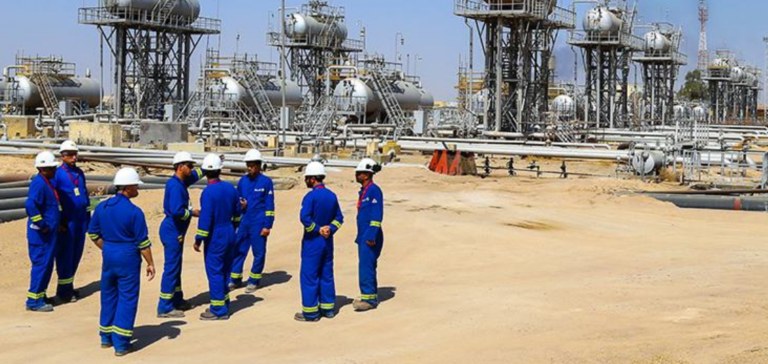The settlement agreement signed with Exxon Mobil Corp is a crucial milestone in the development of the West Qurna 1 field. This agreement allows PetroChina to become the main contractor for the field, a decision supported by the Iraqi Ministry of Oil and the Basra Oil Company (BOC).
Implications of the Exxon Settlement Agreement
Hassan Mohammed, BOC’s deputy director in charge of oilfield and license tower affairs, explains the importance of this transition. According to him, study of the settlement agreement has led to the conclusion that PetroChina is the ideal candidate to run operations at West Qurna 1.
PetroChina’s rise to power
The signing of this agreement was also accompanied by a “sales agreement”, settling the financial aspects of the transfer of Exxon Mobil Corp’s share in the oil field by the Iraqi state-owned BOC. Mohammed stresses that this agreement includes a commitment to resolve at a later date the tax value that Exxon must pay for the sale of its stake.
Financial and Fiscal Details of the Agreement
Although the tax details remain unresolved, with two possible options – a tax settlement or recourse to arbitration, the general framework of the agreement has now been established. Exxon and PetroChina did not immediately react to these developments, but two oil officials from the West Qurna 1 field confirmed details of the settlement and sales agreement signed with Exxon.
Impact on the Iraqi Energy Sector
This change of ownership is not an isolated event. Last year, Pertamina, Indonesia’s national oil and gas company, acquired 10% of Exxon Mobil’s share in the West Qurna 1 oil field, increasing its stake to 20%. At the same time, the BOC bought 22.7% of the field. In addition, Basra Oil Company director Khalid Hamza revealed in an interview in 2021 that Exxon was looking to sell its share for $350 million. West Qurna 1, located in southern Iraq, is one of the world’s largest oil fields, with recoverable reserves estimated at over 20 billion barrels. It currently produces around 560,000 barrels a day, according to field managers.
With this departure from West Qurna 1, Exxon will no longer have a presence in the Iraqi energy sector, stress BOC officials. This transition marks an important milestone in the region’s energy economy, reflecting a change in the dynamics of partnerships and ownership within the oil industry.
The agreement between Exxon Mobil and PetroChina for West Qurna 1 marks a significant turning point in the management of one of the world’s largest oil fields. Indeed, this development, characterized by a change in leadership and complex financial and fiscal implications, opens a new chapter for the energy industry in Iraq and beyond, raising questions about the future of international collaboration in the energy sector.






















